Meet the Co-Chairs of Davos 2016

Sunrise over Davos, Switzerland Image: REUTERS/Ruben Sprich
As our Annual Meeting gets underway, the spotlight of the world once again turns to the leaders from across business, government, civil society, science, the arts and other communities who will be participating at the meeting, helping to understand the Fourth Industrial Revolution and drive forward our work on ten global challenges.
Few people represent the spirit of our meeting each year, however, more than our Co-Chairs, who help shape the programme, engage in some of the key debates, meet with other communities and often contribute time and resources to furthering key projects.
This year, the co-chairs are: Mary Barra, Sharan Burrow, Satya Nadella, Hiroaki Nakaneshi, Tidjane Thiam and Amira Yahyaoui. Hailing from across the world, each has a different perspective on the theme of our Meeting, Mastering the Fourth Industrial Revolution.
Mary Barra, Chief Executive Officer, General Motors
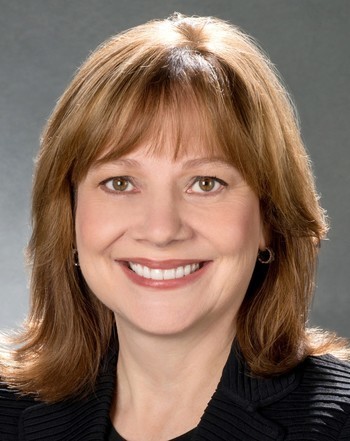
Née Mary Makela in Waterford, Michigan as the daughter of a Pontiac die maker, Barra is a pioneer in her field in many ways. On a personal level, she was the first of her family to go to college, earning an engineering degree at the former General Motors Institute, and an MBA at Stanford. On a professional level, having worked her entire career at GM, in 2014 she became the first woman in history to lead a major car company, earning the additional title of Chairman in January 2016. She is widely credited with helping the car industry seize the initiative back from newcomers such as Tesla and Google in key disruptive areas such as electric and self-driving vehicles. In December 2015, she was one of a number of leading automotive CEOs to sign up to a Forum initiative, CEO Climate Leadership for Automotive Statement in support of the outcomes of the COP21 Climate talks.
At Davos, Mary’s key interests are likely to be the future of technology, personal mobility and leadership in a disruptive business world.
Sharan Burrow, Secretary-General, International Trade Union Confederation
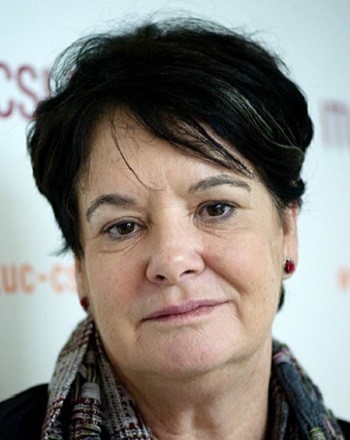
Hailing from a family strongly involved in the labor movement, and having worked as a teacher in her early career, Australian Sharan Burrow has intimate knowledge of two crucial challenges: to secure a qualitative education for all, and to advance the rights of workers and reverse a global trend towards more economic inequality. In a conversation with the ILO, she thus left no doubt that those were her among priorities for 2015 and beyond: “The global economic environment remained very hostile for working people,” she said. “The global economy is still not fixed, with unemployment still above the level at the start of the global financial crisis, and hundreds of millions of workers without jobs or social protection.”
And like Barra, Burrow is also the first woman to lead her organization, the International Trade Union Confederation. Assuming office, she made it clear that advancing gender parity would always remain a priority for her, as well. "I am a warrior for women and we still have work to ensure the inclusion of women in the work place and in our unions,” she said. More recently, she played an active role in the Paris COP21 climate talks, arguing in a recent Agenda post that, ‘There are no jobs on a dead planet.’
This week in Davos, alongside climate her priorities are likely to be income inequality, gender, rebuiilding trust between people and government and other issues that affect the lives of working people.
Satya Nadella, Chief Executive Officer, Microsoft
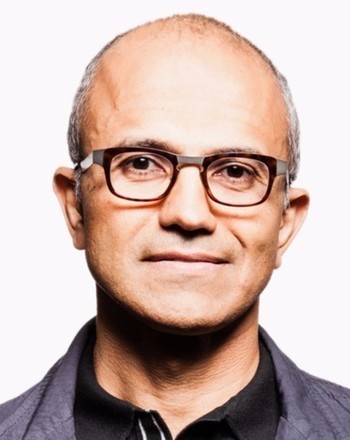
Born and raised in Andhra Pradesh, India, Nadella was one of hundreds of thousands of Indians who sought a career in the United States. He is now one of a handful of Indian-Americans at the top of a global IT company. At Microsoft, he last took charge of the company’s cloud activities before taking the helm as CEO. Rebuilding the relevance of Microsoft, he knows all too well the dynamic reality of the Fourth Industrial Revolution, where you either disrupt or are disrupted. In December 2015, he was the subject of a major article in TIME magazine, in which he was described as having made Microsoft cool again.
At the Annual Meeting, Satya’s priorities are likely to build consensus around a personal passion of his; breaking down the digital divide by accelerating the roll-out of cloud computing by governments, civil society and aid organizations.
Hiroaki Nakanishi, Chairman and Chief Executive Officer, Hitachi
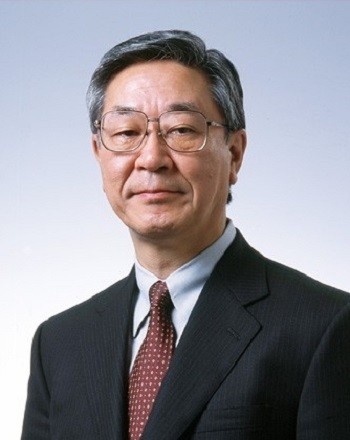
Japanese Hiroaki Nakanishi has been working for Hitachi since 1970, two years before the World Economic Forum was even founded. As such, he may be the most experienced of all co-chairs.
With a rich heritage when it comes to technology innovation, Japan has played a leading role in the development of today’s robotics and artificial intelligence, along with other key technologies of the fourth industrial revolution. It is also playing a pioneering role in the development of new applications, with robots increasingly being seen as having a key role to play in the care sector, especially when it comes to looking after the country’s ageing population. In this vein, Mr Nakanishi can be expected to play a lively role in Davos promoting his vision of Society 5.0, a Japanese government initiative to deploy cutting edge technologies in ways that deliver better public services and social good as well as economic value.
Tidjane Thiam, Chief Executive Officer, Credit Suisse
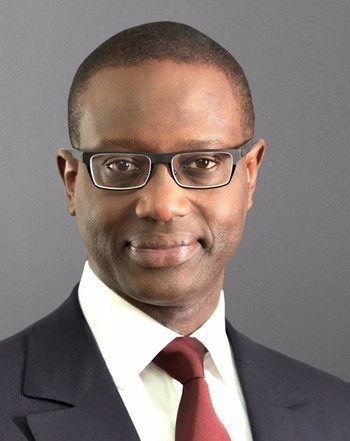
At Credit Suisse, Tidjane Thiam is shaping the bank of the 21st century. Having been born in the Ivory Coast and with joint French and Ivorian citizenship, he has impeccable credentials as a disruptor. On becoming CEO at UK insurer Prudential in 2009 – in so doing becoming the first African to lead a FTSE100 business – he led a controversial but ultimately successful pivot of the organization towards Asia, buying the Asia assets of US Insurer AIG. In joining Credit Suisse in June of last year, he has wasted no time in rolling up his sleeves; embarking on a wide-scale restructuring of the bank’s operations and tackling long-standing controversial areas such as banker’s pay.
In Davos, Mr Thiam will be taking part in a number of conversations. Aside from joining a CNBC TV debate on the Global Economic Outlook, he has a well-known interest in a range of issues, from the future of the global financial system to infrastructure (he was appointed chair in 2011 of the G20’s High Level Panel on Infrastructure Investment) to income inequality (it is Credit Suisse research that Oxfam uses evey year to publish its annual report on inequality).
Amira Yahyaoui, Founder and Chair, Al Bawsala and Global Shaper of the Tunis Hub

Yahyaoui lives and works in Tunisia, arguably the birthplace of the Arab Spring. As a human rights advocate, Yahyaoui monitors the work of the Tunisian parliament and other institutions, using technology to make information accessible to citizens. That latter technique allows her to influence and explore the impact of the Fourth Industrial Revolution on society.
Like so many countries, Tunisia has been afflicted by terrorism. Earlier in 2015, gunmen placed a deadly attack on the tourist town of Sousse in Tunisia. At Davos, Amira will share her experiences assisting in the rebuilding of stable civil society, as well as trust between the public and leaders, particularly among young people.
Don't miss any update on this topic
Create a free account and access your personalized content collection with our latest publications and analyses.
License and Republishing
World Economic Forum articles may be republished in accordance with the Creative Commons Attribution-NonCommercial-NoDerivatives 4.0 International Public License, and in accordance with our Terms of Use.
The views expressed in this article are those of the author alone and not the World Economic Forum.
Forum Stories newsletter
Bringing you weekly curated insights and analysis on the global issues that matter.
More on Forum InstitutionalSee all
Beatrice Di Caro
December 17, 2024





